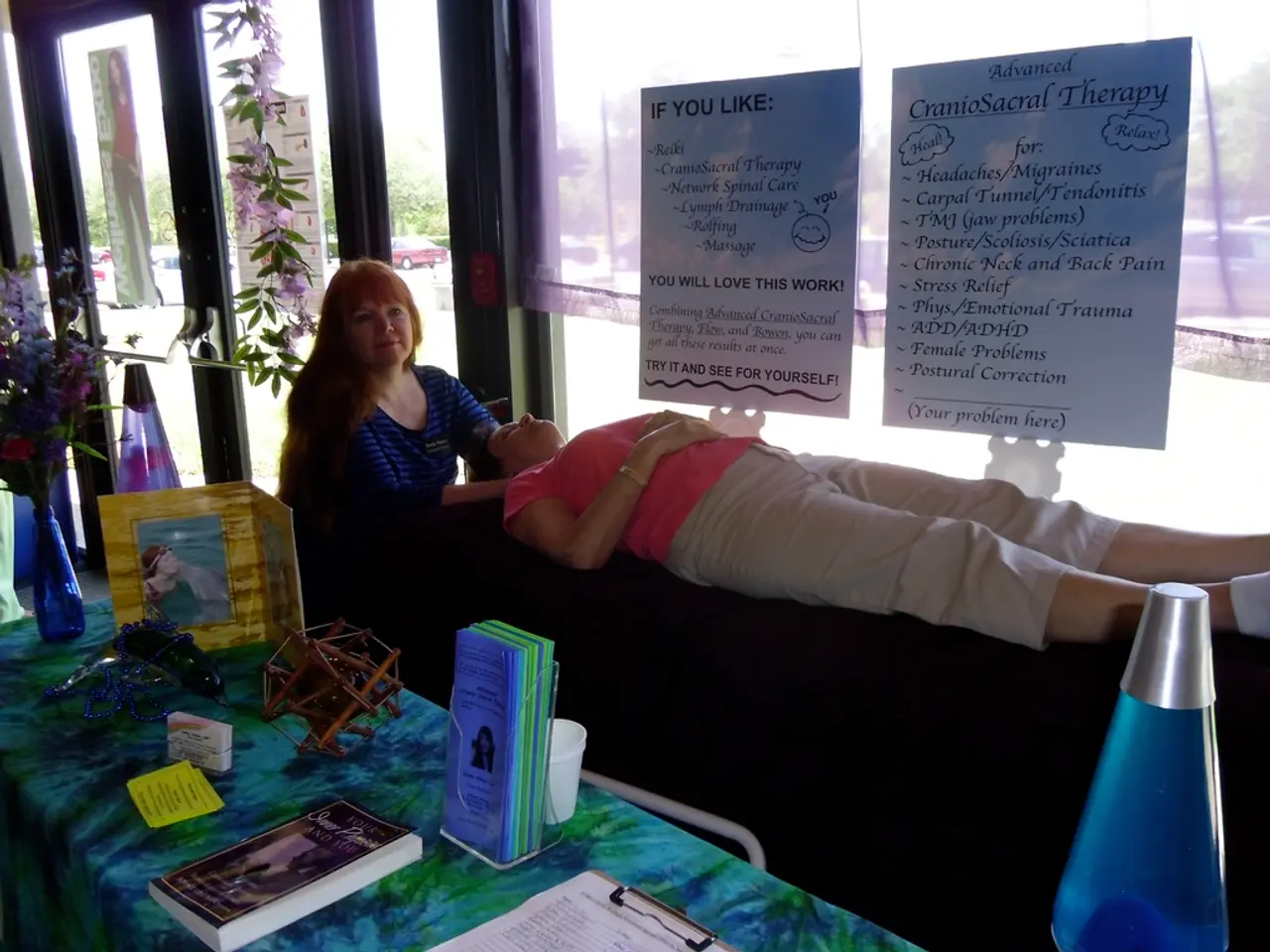Four Potential Explanations for Persistent Mood Disorder
Depression is a common mental health disorder that affects millions of people worldwide. The causes of depression are complex and multifaceted, with stressful life events, genetic predisposition, neurotransmitter imbalances, hormonal changes, and negative cognitive patterns all playing a role.
One of the most common causes of long-lasting depression is the occurrence of stressful life events, such as conflicts, the loss of a loved one, grief, or work pressure. Genetics can also play a significant role, with some individuals being more prone to depression due to their genetic makeup. Neurotransmitter imbalances, particularly those involving serotonin, noradrenaline, and dopamine, are also linked to depression. Hormonal changes, such as those experienced during the postpartum period, menopause, or thyroid issues, can also contribute to the onset of depression.
Treating depression often requires a combination of approaches. Medications, such as antidepressants, are commonly used to manage symptoms, but it's important to note that these often take several weeks to take effect. In some cases, medication for depression can stop working or decrease in effectiveness. In such situations, mental health professionals may explore alternative options to treat treatment-resistant depression (TRD) symptoms. TRD is considered when symptoms don't improve after being treated with two different classes of antidepressants, such as selective serotonin reuptake inhibitors (SSRIs) and serotonin-norepinephrine reuptake inhibitors (SNRIs).
In addition to medication, psychological support, including cognitive behavioral therapy, can be beneficial. Maintaining social connections, managing stress effectively, and self-help techniques, such as self-care, regular physical activity, balanced nutrition, positive self-talk, relaxation time, reconnecting with significant people, engaging in activities you used to enjoy, and requesting support from others, can also help in managing depression symptoms.
It's important to remember that healing from depression is possible, but it might require effort. In some cases, symptoms can intensify and last longer if depression remains untreated. Untreated depression can cause physical and psychological effects, including chronic inflammation, headaches, digestive challenges, chronic fatigue, insomnia, and anxiety.
If you or someone you know is in crisis and considering suicide or self-harm, resources such as the 988 Lifeline, Crisis Text Line, Befrienders Worldwide, and local emergency services are available for support. Online support groups for depression are also available for additional support.
Finding a compassionate mental health professional can help in the treatment process. Healing from depression is possible, even if it takes longer than expected. It's essential to remember that depression isn't necessarily endless, but it can persist for months or longer. With the right support, understanding, and care, recovery is possible.
Read also:
- Nightly sweat episodes linked to GERD: Crucial insights explained
- Antitussives: List of Examples, Functions, Adverse Reactions, and Additional Details
- Asthma Diagnosis: Exploring FeNO Tests and Related Treatments
- Unfortunate Financial Disarray for a Family from California After an Expensive Emergency Room Visit with Their Burned Infant








